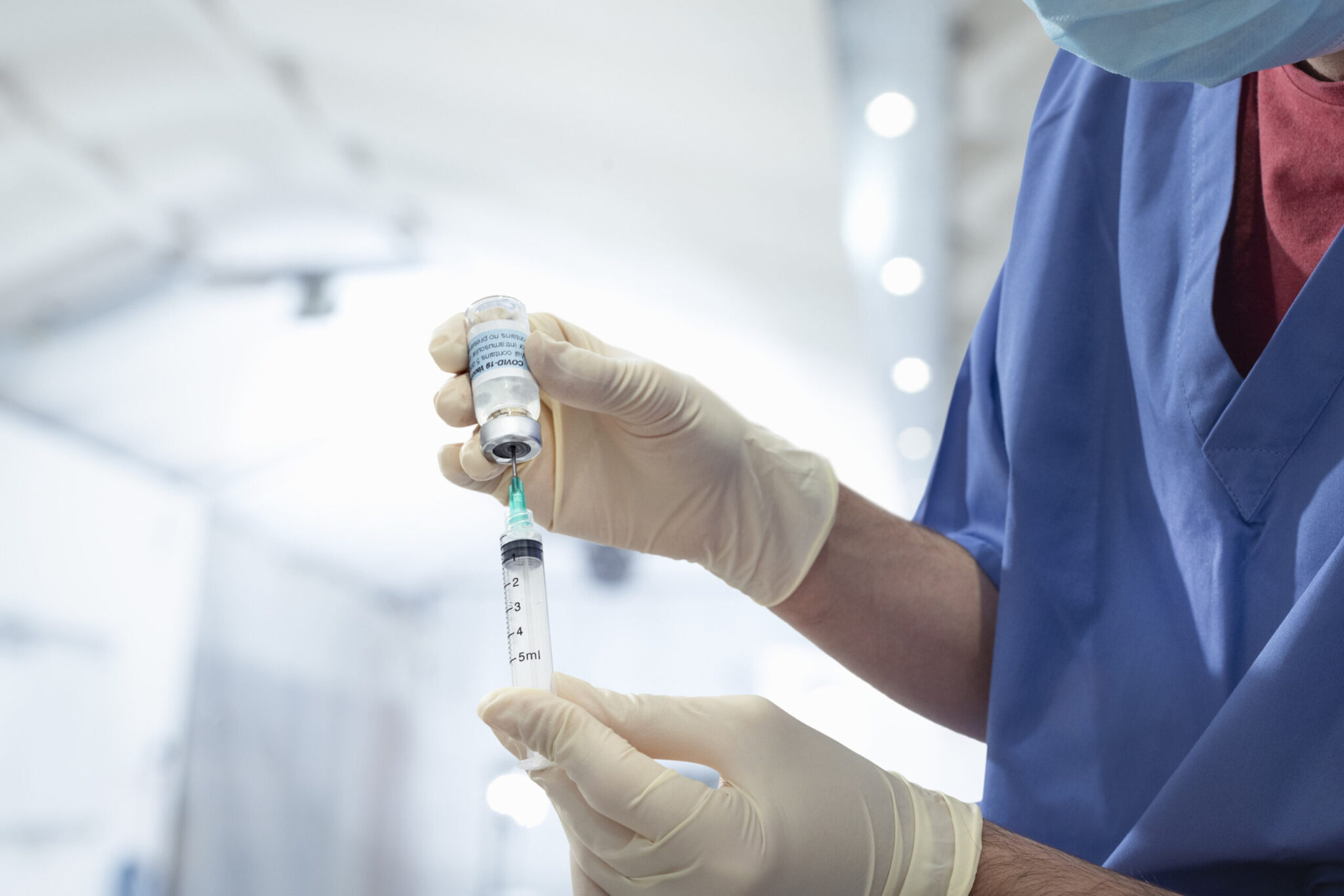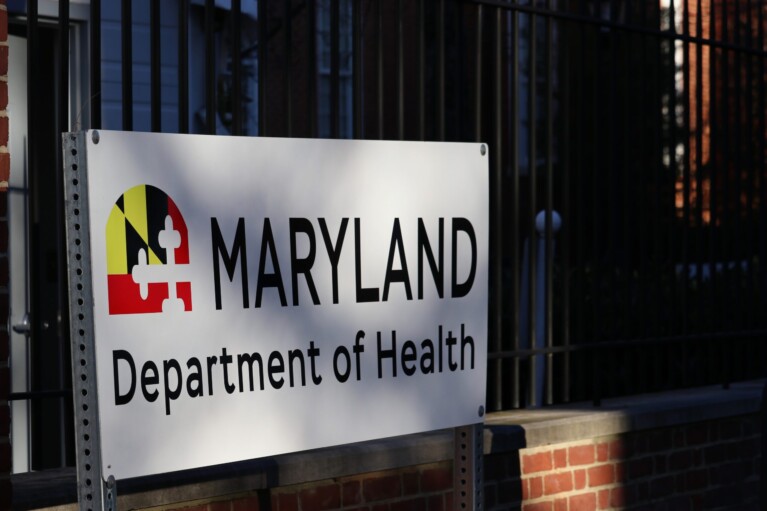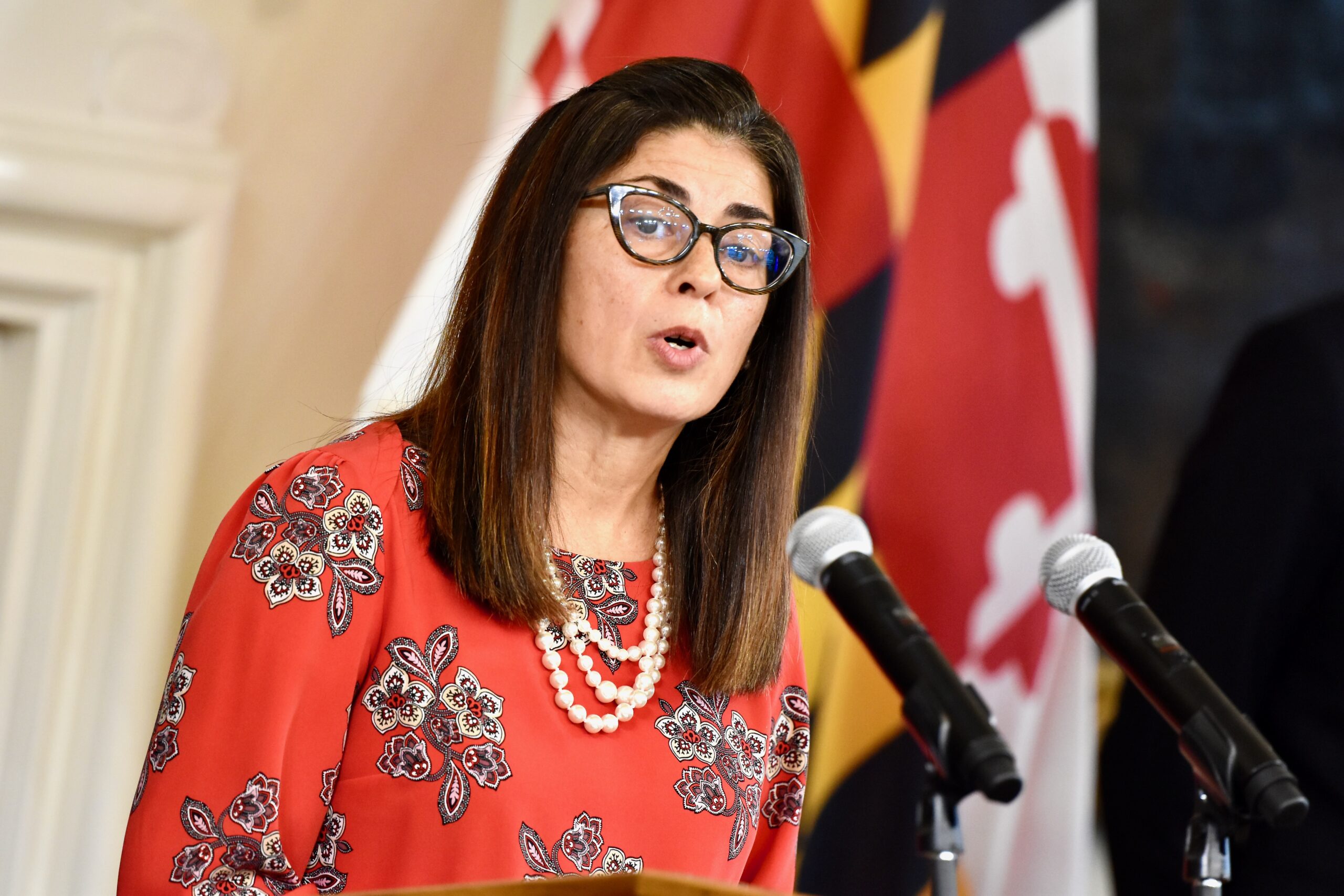Doctors, health officials advise Marylanders to get vaccinated before holiday travel

Ahead of the winter holiday season, some Maryland doctors and state health officials are urging residents to get vaccinated for COVID and influenza ahead of celebrations and family visits, as new vaccines are available to help protect from COVID-19 and other respiratory ailments.
“This is the first fall and winter virus season where vaccines are available for the three viruses responsible for most hospitalizations — COVID-19, RSV, and flu,” according to a September press release from the Centers for Disease Control and Prevention.
The CDC has urged people aged 6 months and older to receive an updated COVID-19 vaccine to better defend against modern variants of the virus. Updated Pfizer-BioNTech and Moderna vaccines have been available as of September.
According to Maryland Department of Health data on COVID-19, analyzed by Maryland Matters, there were an average of 303 people hospitalized with COVID each day in November. That’s up from an average of 244 people hospitalized each day in October.
But Dr. James D. Campbell, an infectious disease pediatrician with the University of Maryland Children’s Hospital and professor at the University of Maryland School of Medicine, is also recommending that people also get their flu shot now, as the vaccine takes a few weeks to fully take effect.
“We urge everyone to get their flu shots as soon as possible, especially if they plan to visit their relatives during the holidays,” he said.
“The flu vaccine takes about two to three weeks to become fully effective, and it can prevent serious complications like pneumonia. Pneumonia can be very dangerous for young children, older adults and people with weak immune systems, but it can also affect healthy people,” Campbell said in a written statement.
“In recent weeks we have seen a rise in hospitalization for respiratory illnesses at the University of Maryland Children’s Hospital and the broader University of Maryland Medical Center,” he added.
According to data from KFF, a nonprofit health policy research and polling organization, 59.8% of Marylanders received a flu vaccine during the 2022-23 influenza season, higher than the national average of 49.3%.
However, data shows that some adults are not interested in receiving vaccines such as the new COVID-19 booster ahead of the holidays.
According to a November report from KFF, surveying adults from Oct. 31 through Nov. 7, only one in five adults said that they had received the new COVID vaccine at the time of the survey.
The results also showed that 26% of adults said they would “definitely” or “probably” get the updated vaccine. KFF reported that people aged 65+ years or older were more likely to have already gotten the updated booster or were “definitely” intending to get one.
“This is meaningful given that those ages 65 and older are more vulnerable to COVID-19, as they’re more likely to get seriously sick and experience complications that could result in hospitalization,” the KFF report says.
But 34% of adults surveyed said that they would “definitely not” get the vaccine, and another 17% percent said that the would “probably not.”
The survey results also found that 74% of adults were not too worried or not at all worried about catching COVID-19 over the holidays, and 68% were not worried or not at all worried about spreading COVID-19 to people close to them.
The Maryland Department of Health has also urged Marylanders to take precaution this winter, and expanded an informational campaign urging residents to protect themselves against COVID-19, influenza and respiratory syncytial virus, or RSV.
“We are also excited that this year, for the first time, there are RSV vaccines and antibody treatments available for older adults, pregnant women, and newborns to protect our most vulnerable Marylanders against severe RSV infections,” Maryland Department of Health Secretary Dr. Laura Herrera Scott said in a written statement.
According to a November press release from the state health department, recent developments in vaccination and treatment efforts can help protect medically vulnerable populations from RSV, which can lead to serious respiratory health problems such as bronchiolitis and pneumonia.
“For Marylanders 60 and older, there is a new RSV vaccine that decreases the risk of severe illness from this respiratory virus,” the press release says. “There is also now protection for babies in the form of a new vaccine for pregnant women in their third trimester, as well as a monoclonal antibody treatment for newborns and at-risk infants.”




 Creative Commons Attribution
Creative Commons Attribution